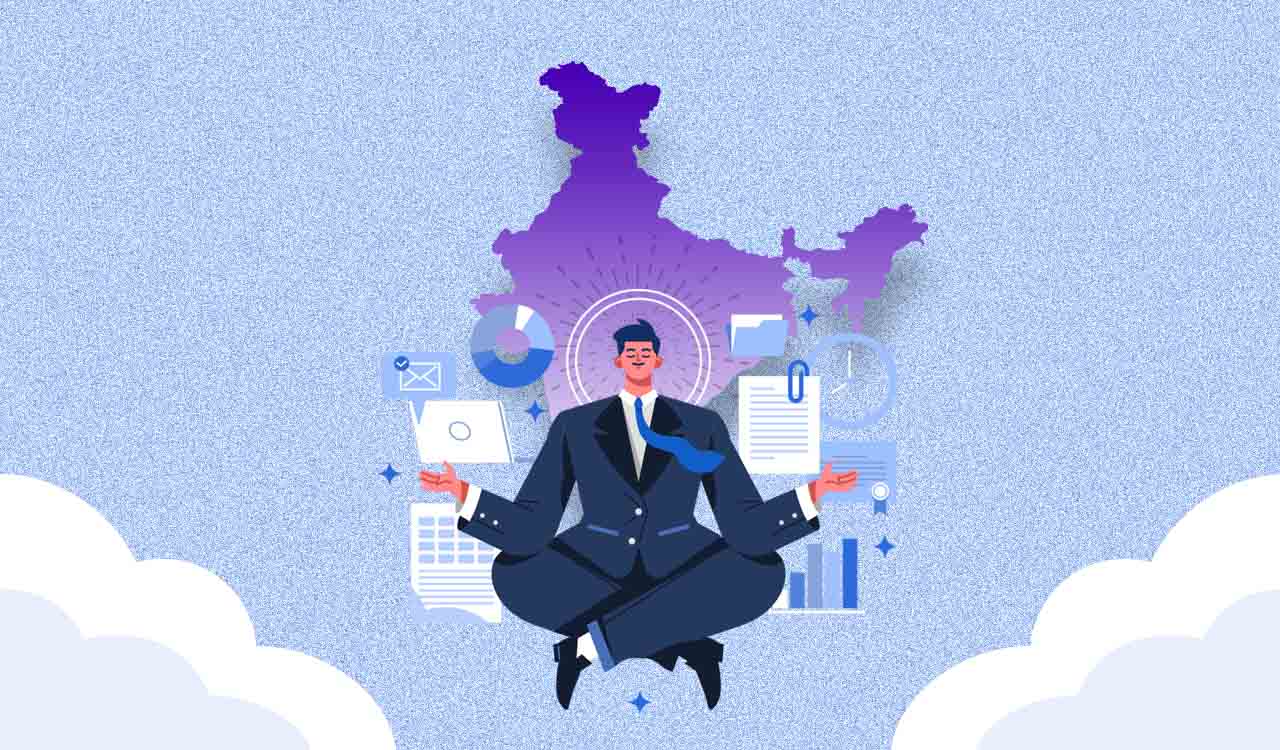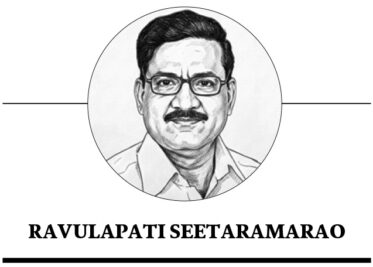Opinion: Amid global flux, self-reliance the way for India
As the balance of power shifts, India must strengthen regional ties and revive Russia’s role as a trustworthy partner

By Ravulapati Seetaramarao
The Trump-Putin Alaska meeting does not appear to have brought significant benefits to India. Although the meeting was held to resolve the Russia-Ukraine war issues, at a time when both the US and Russia are considered friendly nations by India, it is disappointing that there seems to be no indication of any change in the US tariff policies affecting India.
Also Read
It appears the meeting was primarily aimed at securing economic advantages for Russia and the US in the coal and oil sectors, rather than resolving the Ukraine crisis. The ceasefire promise vanished from Trump’s lips. When Russia insisted on a resolution, President Donald Trump predictably reverted to his usual habit of altering statements, which was diplomatically unsurprising to those familiar with his approach.
With Trump and Putin revealing such tactics in Alaska, it is hard not to wonder if Ukraine is being sacrificed as a pawn. The emerging cordial atmosphere between the US and Russia might be seen by Prime Minister Narendra Modi as a potential relief for the economic pressures on India. Since India has always considered Russia a trustworthy friend, there is nothing wrong with the Prime Minister thinking along those lines.
Reality of Alaska Summit
However, the reality of the Alaska summit was quite different! While it may help restore US-Russia relations, it will clearly not improve ties with India. Since Trump assumed the American presidency, efforts have been under way not only to enhance ties with Russia but also to boost Russia exports. Meanwhile, imports of Chinese oil from Russia are rising more than those from India —a fact no one can deny!
While the US troubles India with tariffs, it simultaneously strengthens relations with Russia and ignores China’s assertive actions — making it obvious that Washington looks down on India. America’s double standards are evident: Trump repeatedly claims responsibility for a ceasefire between India and Pakistan, yet hosts grand dinners with Pakistan’s Army Chief, showing excessive friendliness and granting wide publicity to such events. This amounts to diplomatic disrespect towards India and demonstrates unrestrained arrogance.
Trump’s tariffs expose America’s double standards—strengthening ties with Russia while overlooking China’s assertiveness
That is why India has no hesitation in attempting to restore relations with China, although it is difficult to predict how successful the efforts of India’s National Security Advisor Ajit Doval will be in this regard. India has gradually realised that, after Trump’s re-election, he has been covertly supporting Pakistan. However, when Trump was out of office, India had friendly ties with Biden — a fact Trump currently cannot digest. Hence, he is trying as much as possible to prevent Russia and China from extending support to India.
Global Diplomacy
On the international stage, a country can maintain enmity or friendship with other nations only to a limited extent. Constantly adopting such an approach ultimately results in setbacks. Relations between countries endure only when there is balanced friendship and mutual give-and-take. Unfortunately, Trump’s aggressive policies are destabilising the steady state of international relations. In his attempt to boost personal prestige, Trump is making decisions with double standards, unlike any previous leader, leading to a shortage of ‘balance of power’ among leading nations.
China is exploiting this situation, cooperating with the US only when it benefits itself, while quietly advancing its own policies. Therefore, Beijing is moving closer to New Delhi, trying to downplay past clashes like the Galwan confrontation and conflicts along the Line of Control. What India currently needs is camaraderie with its neighbouring countries. It must make sincere efforts to include neighbours such as Afghanistan, Nepal, Sri Lanka, and Bangladesh.
These efforts must be genuine, addressing minor mistakes and resolving issues with sincerity to establish clean, long-standing relationships — not merely superficial gestures.
To weaken Pakistan, India must strengthen its bonds with neighbours and diplomatically work to restore Russia as a trustworthy, friendly nation. Despite China’s behind-the-scenes support for Pakistan under the current circumstances, there are clear signals lately that Pakistan is refraining from openly clashing with India. India must encourage this atmosphere as much as possible.
GST Cushion
All of these point to one thing: India must adjust its export and import policies to counter US strategies, especially to offset Trump’s tariff impact. The recent reforms introduced in the GST (Goods and Services Tax) system are timely. By shifting 99 per cent of items from the 12 per cent slab to the 5 per cent slab, and moving 90 per cent of items from the 28 per cent slab to 18 per cent, the tax burden on consumers will ease — this should be seen as a positive development.
Systematically revising these tax slabs helps eliminate complicated procedures and litigation. Commercial disputes within the GST framework will also be mitigated. In a way, this can help neutralise Trump’s tariff policies to some extent and provide relief from economic turmoil.
The strengthening of India is not something major countries will naturally welcome. India must forge ahead with integrity and resolve to overcome these challenges. Prime Minister Modi appears fully aware of these matters. With a precise understanding, it is now time to firmly set the goal of transforming India into a leading nation that can compete economically and politically on the global stage.
As a positive sign, China’s envoy to India, Xu Feihong, condemned the US tariff policies. At the Shanghai Cooperation Organization (SCO) summit, attended by Prime Minister Modi, Russian President Vladimir Putin, and leaders from Central Asia, Pakistan, Iran, and Belarus, the damage caused by US trade and tariff policies was widely highlighted. The Chinese envoy’s statement that “Only when the dragon and elephant dance together can there be a win-win outcome. China and India should properly handle sensitive issues and maintain peace and tranquillity in the border regions” could be seen as a harbinger of change.

(The author is a retired IPS officer)
Related News
-
Keralam: Kerala’s name change rooted in history and language
2 hours ago -
Shreyanka Patil says it was a difficult phase to miss competitive cricket
3 hours ago -
Senior Nationals 2026: Ajay Thakur calls it India’s biggest kabaddi stage
3 hours ago -
Sale of tickets for ICC Men’s T20 World Cup semifinals and final goes live
3 hours ago -
ICC Women’s T20 World Cup 2026 schedule confirmed
3 hours ago -
Kerala to be renamed Keralam: Union Cabinet
3 hours ago -
Sports briefs: Fine show by AMF para cyclists
3 hours ago -
Pundir century and Yawer 88 give Jammu & Kashmir edge over Karnataka in Ranji final
3 hours ago




